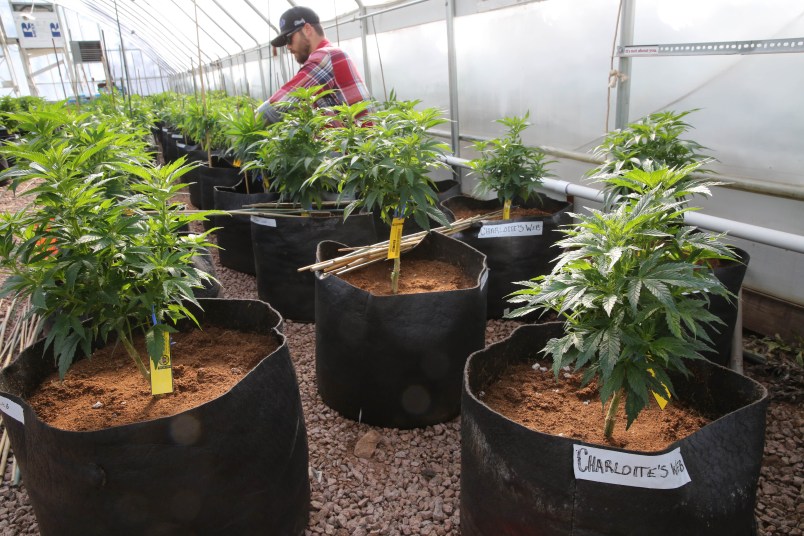Republican attorneys general in Nebraska and Oklahoma sued neighboring Colorado on Thursday over its recent legalization of marijuana.
The Washington Post reported that Oklahoma Attorney General Scott Pruitt and Nebraska Attorney General Jon Bruning filed their lawsuit in the U.S. Supreme Court. The Supreme Court has jurisdiction to hear legal disputes between two states under the Constitution.
They argued that Colorado’s legalization law, passed in 2013 and implemented this year, had violated the Constitution’s supremacy clause, the Controlled Substances Act and international treaties that the United States is a signatory to.
“Oklahoma and states surrounding Colorado are being impacted by Colorado’s decision to legalize and promote the commercialization of marijuana which has injured Oklahoma’s ability to enforce our state’s policies against marijuana,” Pruitt said in a statement, per the Post.
The Obama administration has signaled that it is willing to let Colorado and Washington proceed with their experiments in marijuana legalization, and the lawsuit takes a subtle jab at that decision, noting that Congress has not amended the Controlled Substances Act to allow legalization.
“This Court has identified congressional amendment of the CSA as the only legal mechanism by which a State’s legalization of marijuana can avoid the preemptive effect of the CSA. No such amendment has occurred,” the lawsuit says. “The only thing that has changed… seems to be the executive branch’s willingness to sue a state for violating the CSA.”
Under the Constitution, the Supreme Court has original jurisdiction over, among other things, “controversies between two or more states.” Hence, the case was filed directly with the high court.







Shouldn’t OK be more worried about rampant lesbianism in school bathrooms?
Kidding aside, it won’t be long before many other states follow CO’s lead and get with the 20th century.
Edit: Something something States Rights or something.
Ah, yes, the GOP. The party of individual liberty and states’ rights…
…until you do something they don’t like.
What a crock of shit.
icymi - there was good story in The New York Times about Scott Pruitt being selected to run a new coalition of Republican Attorney Generals called the Rule Of Law campaign. He copied an oil company lobbyist’s letter onto official state letter head and forwarded it to the EPA.
“Oklahoma and states surrounding Colorado are being impacted by Colorado’s decision to legalize and promote the commercialization of marijuana which has injured Oklahoma’s ability to enforce our state’s policies against marijuana,” Pruitt said in a statement, per the Post.
I’m not sure he’s got a legitimate grievance here. That’s some awfully thin soup.